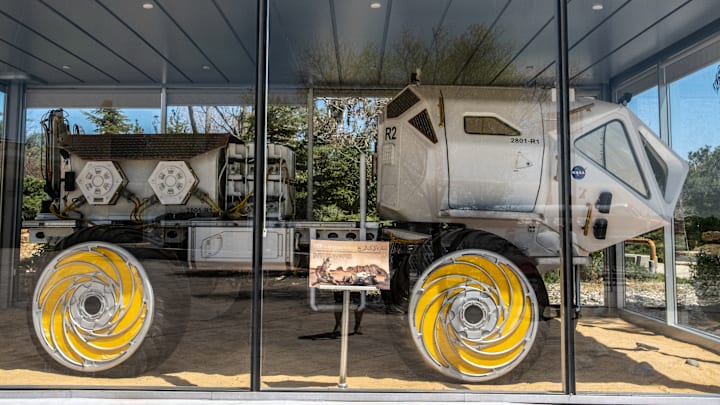The Martian
The Martian is a science fiction novel by Andy Weir, first published in 2011, and tells the gripping survival story of Mark Watney, an astronaut who is left stranded on Mars after a massive dust storm forces his crew to abort their mission and leave the planet, mistakenly believing him to be dead.
Weir has structured the novel as a series of log entries by Watney, describing how he must rely on his ingenuity, scientific knowledge, and engineering skills to survive in the harsh Martian environment. With limited supplies and no way to communicate with Earth initially, Watney must figure out how to grow food, generate water, and generally just stay alive.
Weir's writing has been celebrated for its technical accuracy and use of real science, making Watney's struggle both thrilling and believable. The novel and film have highlighted the themes of resilience, the power of human innovation, and the importance of international cooperation in space exploration to tell a human story.
Important Takeaways
With our recent endeavors to reach and colonize Mars at the forefront of the Space Race, there is a lot we can take away from this piece of fiction.
Problem-Solving Mindset
The story emphasizes the importance of problem-solving, adaptability, and resilience. The protagonist, Mark Watney, is stranded on Mars and must use his skills as a botanist and engineer to survive and "science the shit" out of his various problems.
Resourcefulness and Innovation
Watney uses the materials available to him on Mars to grow food, fix equipment, and communicate with Earth. His ability to "make something out of nothing" reflects the need for self-sufficiency and not being boxed in by the limitations of anything in space.
International Cooperation
In both the novel and movie, NASA collaborates with other space agencies, particularly the Chinese space agency, to rescue Watney, highlighting the strength and benefits of making the Space Race a global endeavor. Global cooperation can accelerate technological advances and ensure missions' success.
Psychological Challenges
Watney faces extreme isolation, physical dangers, and mental challenges, with the story highlighting the psychological toll of long-duration space missions and extreme isolation from other people. Future missions to Mars will involve long periods of isolation and confinement, making mental preparation a key component to success.
Robotics and Automation
Robotic systems and autonomous tools will play a vital role in Mars missions, performing tasks that are dangerous or impossible for humans. Automated systems for habitat setup, exploration, and emergency scenarios will be a cornerstone of Mars colonization efforts.
Communication Delays and Support
The story realistically depicts the significant communication delay between Mars and Earth (about 20 minutes one-way), which affects the decision-making and information relayed.
Mission planners will need to develop protocols and AI systems that support astronaut decision-making without constant Earth-based oversight.
Conclusion
The Martian acts as a potential roadmap and guidebook for future Mars missions by focusing on real-world challenges, from survival and resource management to collaboration and autonomy. The blend of science fiction with scientifically accurate details can inspire engineers, scientists, and astronauts as they prepare for humanity’s eventual journey to Mars.
Follow GeekSided to leave comments and questions
